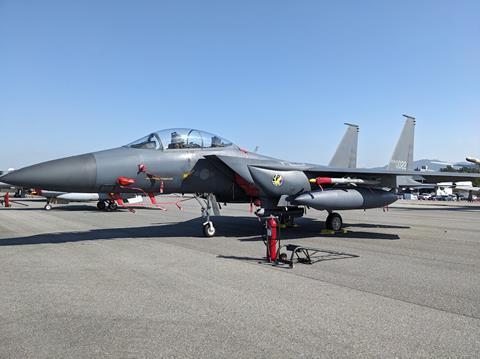Boeing and South Korea’s Defense Acquisition Program Administration (DAPA) are exploring the possibility of developing a high-altitude, long-endurance (HALE) unmanned air vehicle (UAV).
The South Korean defence procurement agency and the US airframer recently held a third meeting about researching the potential programme in the US state of Washington, according to a 17 November statement from DAPA.

The work is still at research level, but DAPA indicates that any UAV that emerges from the collaboration will see Boeing’s design and technology capabilities implemented locally by South Korean companies.
South Korea’s Agency for Defense Development would play a lead role in the initiative.
“If we develop it, it will be recognised for its technological prowess and reliability,” says DAPA official Cho Hyun-ki.
Boeing declines to comment on discussions in DAPA. In April it announced that the two parties had signed a memorandum of understanding related to developing advanced weapons.
Boeing is involved in high-profile UAV programmes including the MQ-25 Stingray, which will serve as a tanker aboard US Navy aircraft carriers, and the MQ-28 Ghost Bat, an experimental “loyal wingman” aircraft designed to explore autonomous operations.
Boeing and DAPA are also discussing the enhancement of South Korea’s military MRO capabilities, including upgrade work.
South Korea operates a number of Boeing types, including 59 examples of the F-15K ‘Slam Eagle’. Seoul aims to upgrade this fleet with a new active electronically scanned array radar, mission computer, and electronic warfare suite.
Separately, on 15 Novemeber the US Defense Security Cooperation Agency (DSCA) announced that Seoul has been cleared to obtain 42 Raytheon AIM-9X Block II Sidewinder air-to-air missiles and related equipment and services. The potential sale is valued at $52.1 million.
“This proposed sale will support the foreign policy goals and national security objectives of the United States by improving the security of a major ally that is a force for political stability and economic progress in the Indo-Pacific region,” says the DSCA.


























